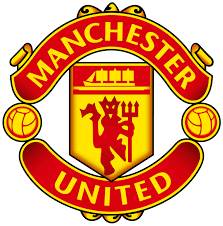Manchester United: The Red Devils’ Legacy of Triumph and Tradition
Manchester United Football Club, commonly referred to as Man United or the Red Devils, is one of the most successful and globally recognized football clubs in history. Based in Manchester, England, the club has built a rich legacy of triumph, passion, and tradition, becoming synonymous with football excellence. From their humble beginnings in 1878 to their current status as a powerhouse in English and world football, Manchester United’s journey has been marked by legendary players, unforgettable moments, and an unwavering pursuit of greatness.
Early History and Rise to Prominence
Manchester United was originally founded as Newton Heath LYR F.C. in 1878 before changing its name to Manchester United in 1902 after being saved from financial collapse. The club initially competed in lower divisions of English football, but their fortunes began to change under the guidance of manager Ernest Mangnall, who led United to their first First Division title in 1908 and their first FA Cup in 1909.
While the early years were a mix of success and struggle, Manchester United began to establish a reputation for strong performances and ambitious football. The club's first real era of dominance, however, came in the post-World War II period.
The Busby Babes and Tragedy
The late 1940s and early 1950s saw the rise of one of Manchester United’s most legendary teams, the Busby Babes, managed by the visionary Sir Matt Busby. The team was known for its attacking style and youthful energy, featuring players like Bobby Charlton, George Best, and Denis Law. They became a dominant force in English football and were tipped for European glory.
Tragedy struck on February 6, 1958, when the team was involved in the Munich Air Disaster. Eight of the club’s players tragically lost their lives in the crash, devastating the club and the football world. Despite this immense loss, Sir Matt Busby rebuilt the team, and Manchester United eventually rose from the ashes to become a force in world football once more.
The Fergie Era: A Period of Unprecedented Success
The 1990s and early 2000s are often considered the golden era of Manchester United, primarily due to the stewardship of manager Sir Alex Ferguson. Having taken over in 1986, Ferguson transformed United from a club struggling for consistency into the dominant force in English football. Under his leadership, United won 13 Premier League titles, five FA Cups, and two UEFA Champions League trophies.
The 1998-1999 season is widely regarded as one of the greatest in football history, as United won an unprecedented treble—the Premier League, FA Cup, and Champions League—culminating in a dramatic comeback victory against Bayern Munich in the Champions League final.
Ferguson’s legacy is built on his ability to extract the best from his players, his unrelenting competitive spirit, and his adaptability. He cultivated legendary players such as Ryan Giggs, Paul Scholes, Roy Keane, and Eric Cantona, all of whom left an indelible mark on the club’s history. His influence extended beyond the pitch, as he helped Manchester United grow its global brand, making the club one of the most commercially successful in the world
.
The Post-Ferguson Era: Challenges and Rebuilding
After Sir Alex Ferguson’s retirement in 2013, Manchester United entered a challenging period. The club struggled to replicate the success of the Ferguson years, with multiple managerial changes and a decline in performances. Managers like David Moyes, Louis van Gaal, and José Mourinho each had varying degrees of success, but none were able to bring the same sustained dominance that Ferguson had achieved.
In recent years, United has focused on rebuilding under the guidance of Ole Gunnar Solskjær, and later Erik ten Hag. While still competing at the highest levels, Manchester United has faced stiff competition from clubs like Manchester City, Liverpool, and Chelsea, all of whom have made significant investments in their squads. Nevertheless, United remains a club with immense history and tradition, and their hunger for success has not diminished.
A Global Brand and Cultural Impact
Manchester United is not just a football club; it is a global brand. With an estimated 1.1 billion fans worldwide, Manchester United has one of the largest fan bases of any sports team. The club’s commercial success is driven by its global appeal, with millions of fans across continents. Their iconic red kit, Old Trafford stadium (known as “The Theatre of Dreams”), and history of unforgettable matches have helped cement United’s position as a cultural and footballing icon.
United’s global influence is not limited to their supporters. The club has been instrumental in shaping the modern game, setting standards for player development, commercial growth, and international football marketing.
Manchester United’s Legacy
Manchester United’s legacy is one of triumph, tragedy, and an undying commitment to greatness. From the emergence of the Busby Babes to the success under Sir Alex Ferguson, United’s history has been filled with moments that have left a lasting impact on football. Despite recent challenges, the club’s potential to return to its former glory remains strong, thanks to its rich traditions, a powerful global brand, and an unwavering ambition to succeed.
The Red Devils are a testament to the enduring power of football and the passion that the sport evokes across generations. With a bright future ahead, Manchester United continues to hold a place at the pinnacle of world football.



